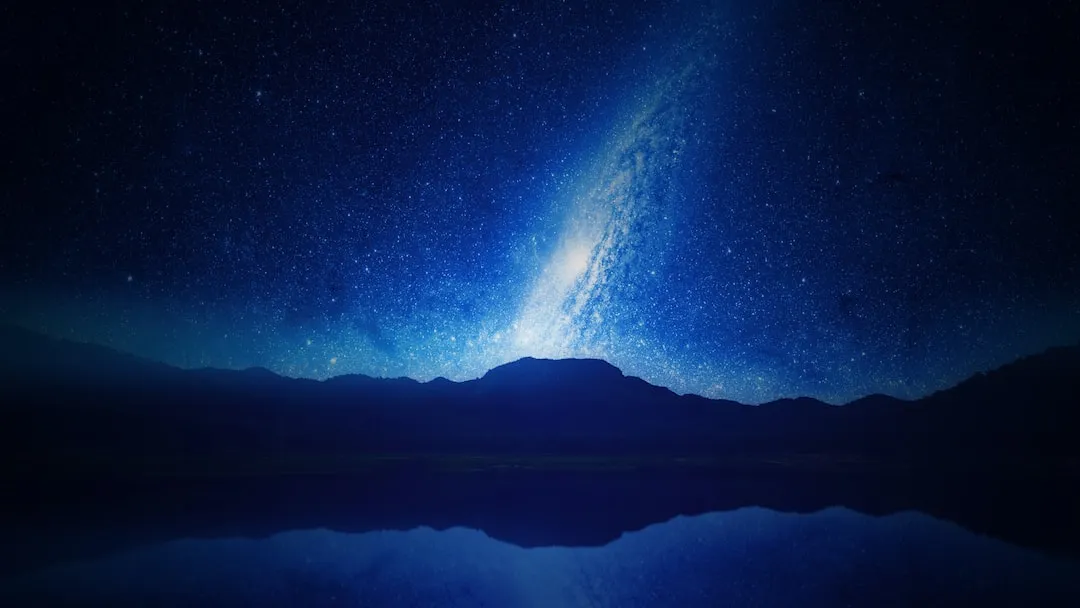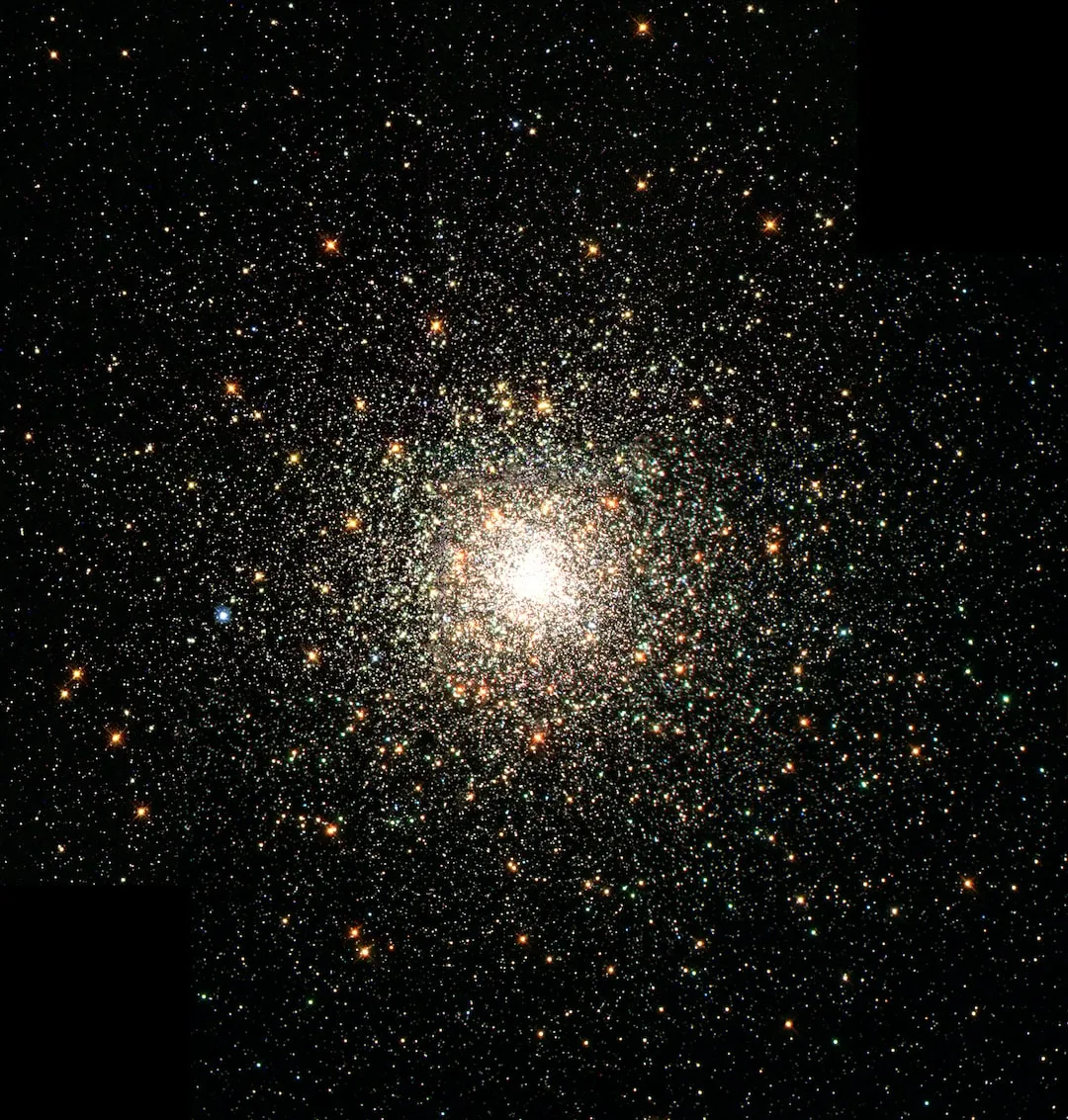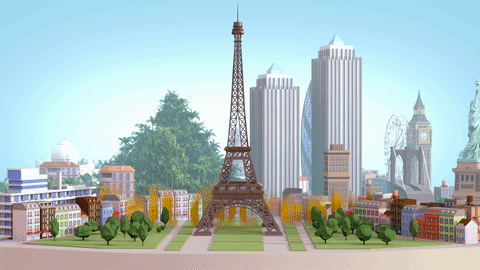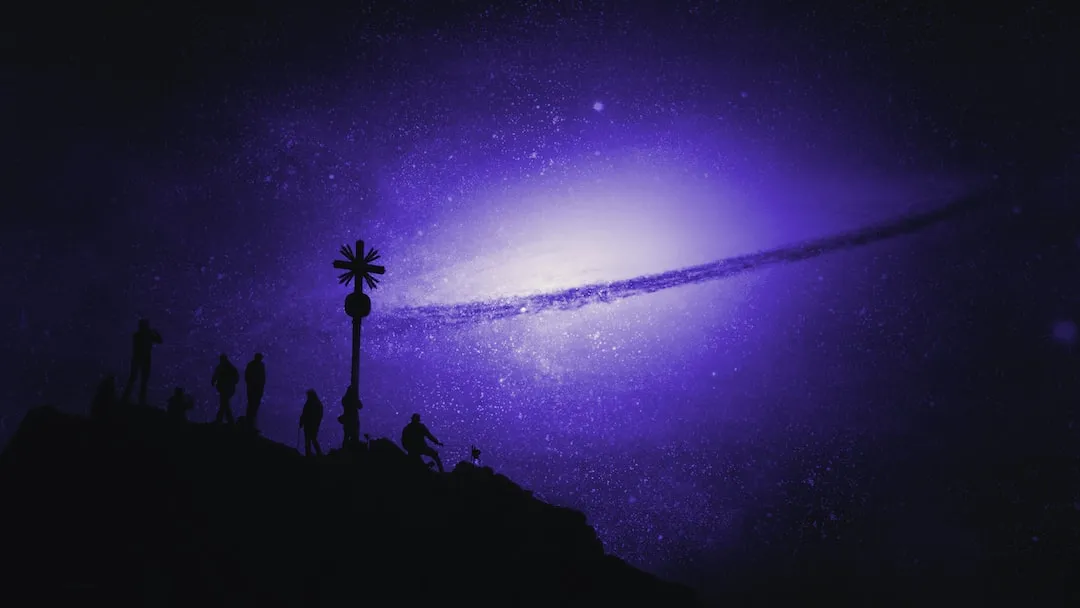"Our little Spaceship Earth is only eight thousand miles in diameter, which is almost a negligible dimension in the great vastness of space."
- R. Buckminster Fuller -
Did the size of the universe really change?
I've been planning to write about this since late last year, when I first read the news. Recent research has revealed our universe to be much larger than previously thought.
Until last fall, cosmologists believed the universe to contain somewhere between one and two hundred billion galaxies. Researchers now believe it holds closer to two trillion galaxies, approximately ten times as many as previously thought to exist.

Our corner of the universe...
Image courtesy of Sweet Ice Cream Photography and http://unsplash.com
Last October,
astronomers at the University of Nottingham, School of Physics & Astronomy, published this paper presenting their findings:
In the paper, they report:
"...we further show that the total number of galaxies in the universe ... is ... (two trillion), almost a factor of ten higher than would be seen in an all sky survey at Hubble Ultra-Deep Field depth."
You can read more about it in the Atlantic article I originally read.
I suspect that because the universe is so incomprehensibly large,
unimaginably beyond our ability to grasp, the news sort of "fell into a crack."
It's disturbing news, simply because it hurts our brains. It confronts us with our smallness.
It was in fact a little bit difficult to find the original articles and references that I recalled from last fall. There is a certain amount of cognitive dissonance that accompanies being confronted with news like this.

200 billion was not enough.
Image courtesy of Juskteez Vu and http://unsplash.com
Hey, wasn't 200 billion galaxies enough?
I guess not. Mankind's irrepressible search for knowledge has driven us to look farther and count more carefully than ever before. And this is probably not be the end of the road. There are new and far more powerful space telescopes on the way.
Will more galaxies be found?
Image courtesy of Juskteez Vu and http://unsplash.com

A beautiful globular star cluster.
Image courtesy of NASA and http://unsplash.com
I have a personal stake in this news.
As someone who believes that Jesus is God, I also believe that he has promised me eternal life.
As in, life that never ends. No death. Eternity.
I've previously written about eternity being a very long time. When some people contemplate the concept of eternity in the New Heavens and New Earth, they mistakenly conclude that living forever could be boring.
Seriously? Boring?
While galaxies come in many shapes and sizes, on average they may hold four billion planets in "the goldilocks zone." That is the distance from their star in which liquid water can exist.

Try reading John's book.
Image courtesy of Ben White and http://unsplash.com
In other words,
multiply four billion worlds by two trillion galaxies, and that's the number of potentially habitable planets I may be able to visit and explore during an endless life. And, that's just the ones we know about so far.
No, I don't think I'll be getting bored any time soon...
As I often do,
I invite you to read John's book, learn about, and perhaps come to believe in Jesus, the creator of all things. Won't you join me on this magnificent adventure?
Visit my Library Science Shelf for more science articles.

FIN
LOOK! Check out our amazing product:>>CLICK HERE!<<
You are why I'm here on Steemit!
I have very eclectic interests and hope, over time, to write about them all.
⬇️To Check Out @creatr's World⬇️CLICK Each Image Below⬇️

|

|

|

